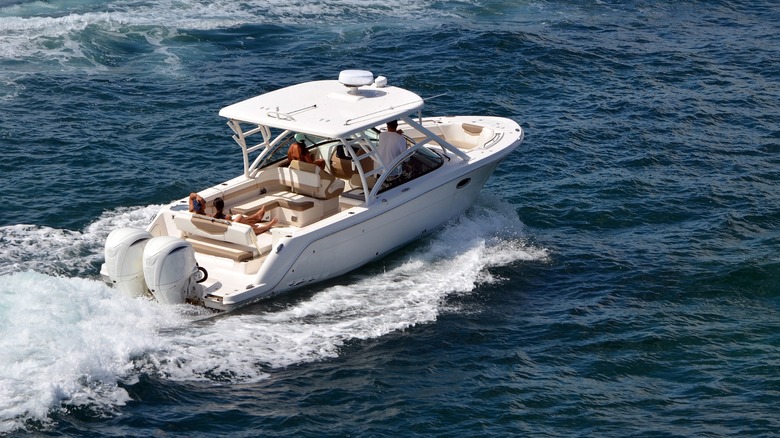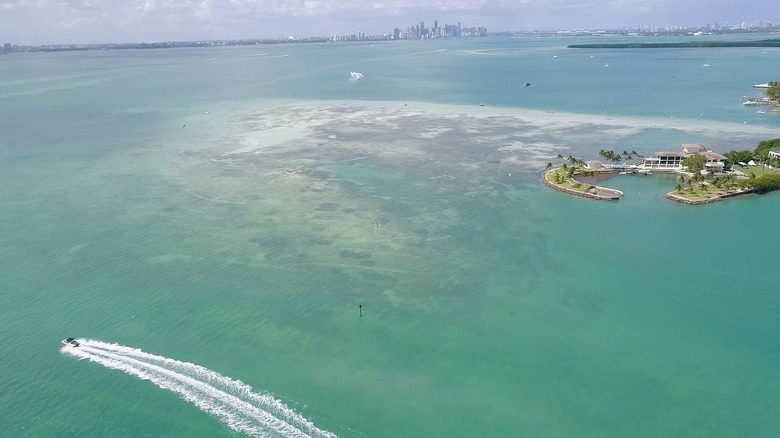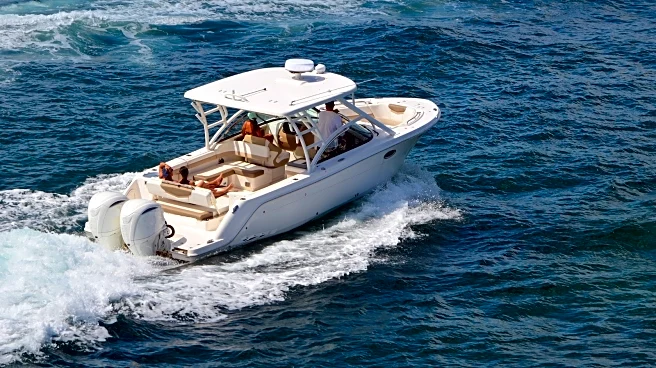
You don't need a license to go boating in the state of Florida. However, if your birthdate is after the year 1988, you must complete a boating safety course. This helps provide some useful training before
getting out on the water with a variety of different vessels, including remarkably fast ones. You wouldn't believe how much performance you can get out of some of the most powerful outboard boat engines ever built, making them dangerous in inexperienced hands.
If you pass the class, you'll get a certificate of completion. But the sunshine state also requires you get a boating safety education ID, from the Florida Fish and Wildlife Conservation Commission (FWC). Fortunately, many safety course providers do send your information to the FWC (if you passed), and you'll then get a permanent card within a matter of weeks.
There are some exceptions, which would allow you to forgo the boating safety course. For instance, you wouldn't need it if the U.S. Coast Guard granted you a license as master of a vessel. Master of a vessel requires a more rigorous process with a medical physical, CPR and first aid training, and lengthy demonstration of competence on the water. You're also exempt if you're boating on a private body of water, such as a backyard pond or privately owned lake. Also, if someone onboard has obtained the FWC education ID and agrees to oversee things, the others in the party don't also need to have passed the safety requirements.
Read more: 5 Mini Gadgets With USB-C That Are Pretty Useful
Where Do You Take The Florida Boating Safety Course And What's It Like?

While there are some options for in-person classroom learning, there are far more online versions available. There is only one course that's free, conducted by the Boat U.S. Foundation, while the other alternatives range in price between $15-and $60. To ensure a particular course is approved by the state of Florida, you should select from the list of online courses on the FWC website.
The first step after you've selected the course provider is to register and pay the fee if it's required. Then, using any internet connected device, you can begin and learn at your own speed. Your progress is saved whenever you close out of the course, so you can return whenever it's convenient to continue. The free course, for example, consists of six different lessons, which each include a short quiz of 10 questions. Upon completing those lessons, you'll be required to pass a final exam, that's made up of 60 questions which are grabbed at random. In total, the free course typically takes between four and eight hours to complete.
The Dangers Of Florida Waters And How To Stay Safe

According to the NMMA as reported by Boating Industry, it's estimated that 85 million Americans enjoy yearly boating, and Florida led the county in boat sales with $6.4 billion in 2023. This means that the waters around the sunshine state can get crowded. Florida also has an abundance of coral reefs, which can sometimes reside just inches from the surface of the water. Though it's not just reef's that present an obstacle for boaters, but also sandbars, which could be more pronounced in certain areas. According to CBS News, in 2022, there were 65 people killed in boating accidents, with more than 40 percent of those due to a novice operator or a lack of situational awareness.
Safe boating requires a bit of planning and some essential tools you should keep on your boat at all times. You should always inspect your boat before departing, and look for any damage or potential problems. Pay close attention to what's under the water and be aware of any nearby reefs or sandbars. It's also recommended to have a float plan, which is essentially information on where the boat is going, when its departing, the route it's taking, and when it should be back. This float plan should be shared with a friend or family member who is not going out on the water.
Want the latest in tech and auto trends? Subscribe to our free newsletter for the latest headlines, expert guides, and how-to tips, one email at a time.
Read the original article on SlashGear.










